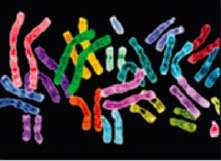
Although environment and comorbid mental health disorders can influence genes associated with addiction risk, few genome-wide association studies utilize statistical models that can take these highly variable factors into account. Those that attempt to address this issue typically incorporate weighting to estimate and adjust for factors that are known to influence risk (using nonparametric statistical test such as weight-adjusted generalized Kendall’s tau). This method can detect genetic effects after adjusting for environmental influences, but the weighting process relies on estimates that are difficult to optimize reliably.
To further refine this weighting process, researchers recently proposed using a different type of statistical analysis (parametric statistics) to estimate a genomic propensity score, which was then used to weight the analysis (the generalized Kendall’s tau). Results from simulation studies showed that this new test improved power compared to other methods, especially in detecting gene-environment interactions. After applying the proposed test to data from the Study of Addiction: Genetics and Environment (SAGE) – which measures addiction to six different substances (alcohol, nicotine, marijuana, cocaine, opiates, and other drugs) – scientists found novel genetic variants associated with addiction.
The researchers propose that by using this new statistical method, scientists can better adjust for gene-environment interactions, allowing them to identify new leads for understanding the role of genetic variants in addiction.
Study:
Identifying Genetic Variants for Addiction via Propensity Score Adjusted Generalized Kendall’s Tau; Yuan Jiang, Ni Li, and Heping Zhang; Journal of the American Statistical Association; Published Online: March 18, 2014. http://dx.doi.org/10.1080/01621459.2014.901223
